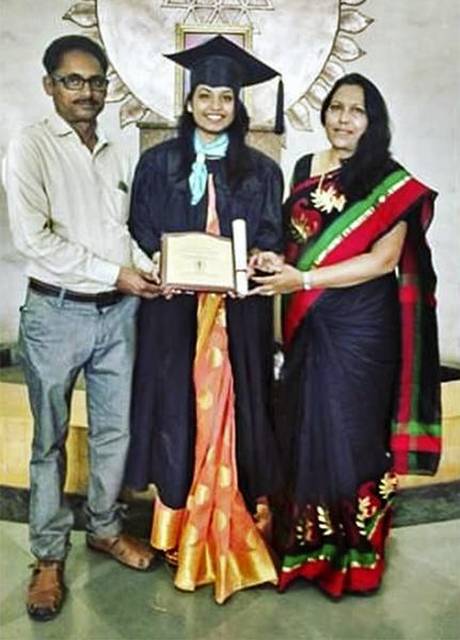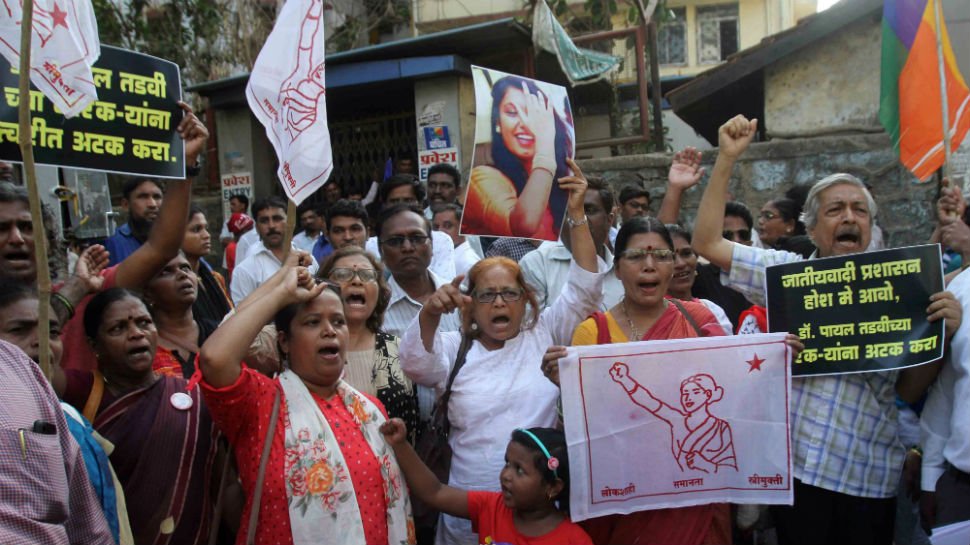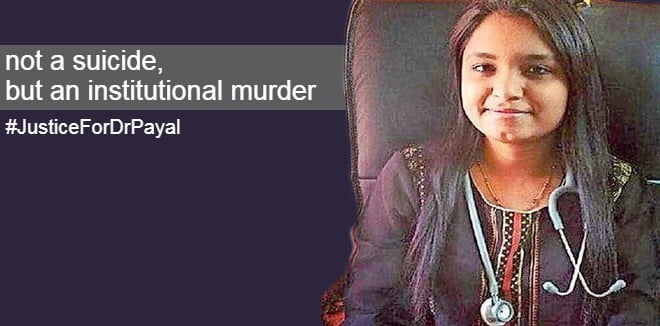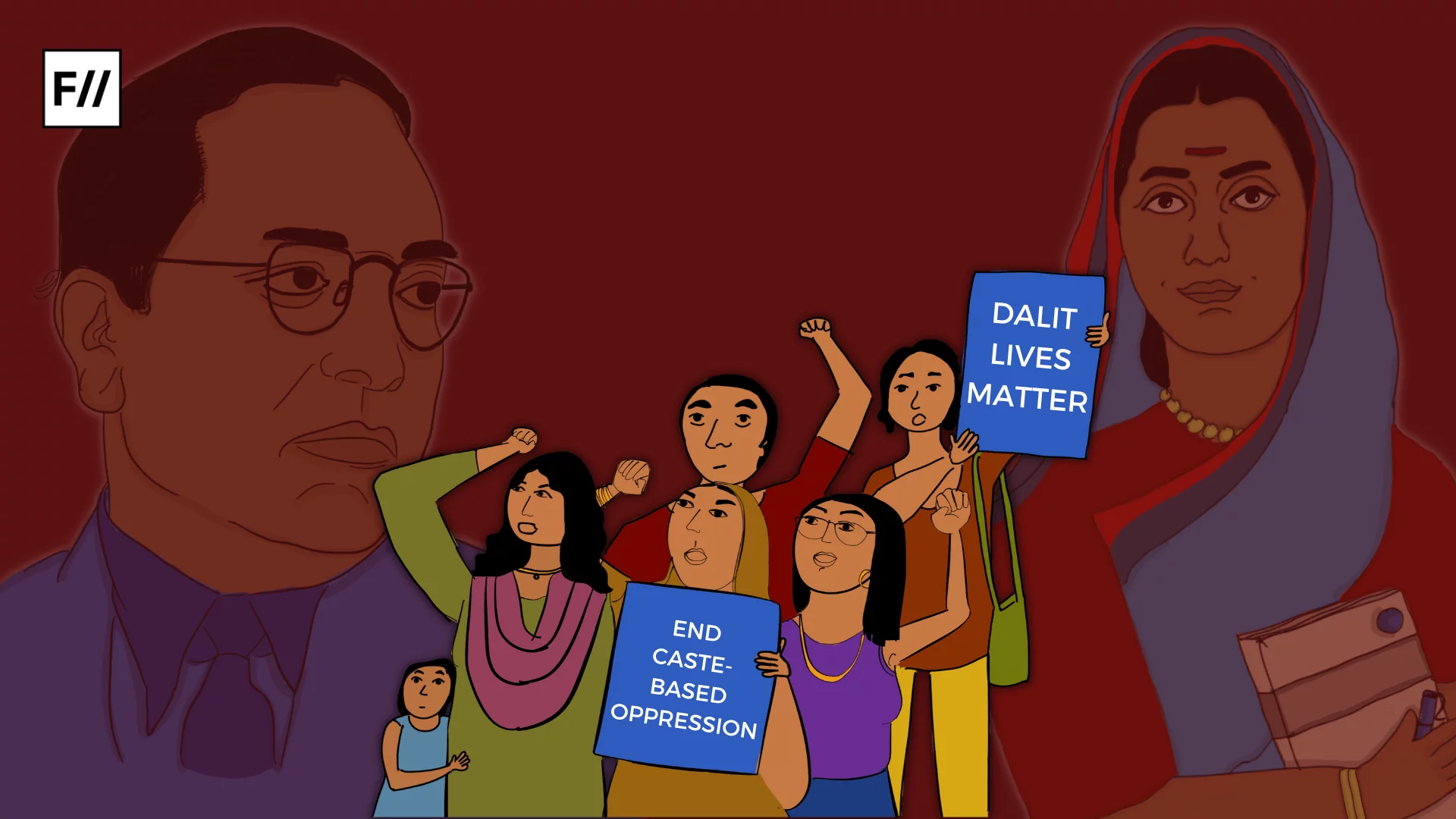On May 22, there was news about the death of Doctor Payal Tadvi, a postgraduate student of gynaecology in Nair Hospital in Mumbai.
The events that led to Doctor Payal’s death clearly show how she was a victim of casteism and Islamophobia that is prevalent in educational institutions today. These events make it clear that her death was not a suicide but an institutional murder. Let us see how.
Who Is Doctor Payal
Doctor Payal hailed from the Jalgaon district of Maharashtra. She was 23-years-old and belonged to the Adivasi Bhil Muslim community. By earning a doctor’s degree, Doctor Payal, with her hard work and struggle, broke the glass ceiling that is otherwise imposed upon the members of her community. Doctor Payal’s mother told The Hindu that Doctor Payal was the first woman from her community to pursue post-graduation and the first in her family to become a doctor.

“We come from the tribal category; my daughter had worked tremendously hard to get a seat in the MBBS and PG courses. She was very hardworking and sensitive and it was her dream to work as a gynaecologist in rural areas. But all of those dreams have gone in vain,” said Salim.
How Doctor Payal Was Subjected To Casteism
Hours before Doctor Payal died, she told her mother, Abeda Tadvi, that she was unable to bear the harassment that three of her seniors had been continuously subjecting her to. Her caste and her marginalised status was always the base for this discrimination.
She was humiliated with casteist slurs and was taunted for taking admission to the course through the reserved category. She was abused on her work WhatsApp group because of her identity. Her seniors even threatened her against entering the hospital’s operation theatre.
Doctor Payal was the first woman from her community to pursue post-graduation and the first in her family to become a doctor.
“When she came to Nair Hospital for her postgraduation, she was asked to temporarily share a room with Doctor Hema Ahuja and Doctor Bhakti Mehar. The two began harassing her soon,” Doctor Payal’s husband, Doctor Salman Tadvi, said and added “The two doctors would go to the toilet and wipe their feet on her mattress and litter it. When she would be away, they would taunt her that she was spending time with her husband.”
Also read: #ViolenceOfSilence: Chennai Protests The Murder of Rajalakshmi, A Dalit Girl From Salem
In the last four days before she took her life, Payal was criticised at work every day. She was not allowed to work and was given only minor tasks. Her seniors would give her the silent treatment, would throw files at her, would threaten her by saying that they would ensure that she doesn’t graduate to the next year, and would scold her in the operation theatre.
How The Authorities Failed Doctor Payal
Doctor Payal’s father, Salim, told mid-day, that her seniors had been ragging and torturing Doctor Payal since December 2018. But when Tadvi’s husband Salman Tadvi filed a verbal complaint with the gynaecology unit head Y.I. Ching Ling on May 13 nothing was done. The administration didn’t take any action even after Doctor Payal’s mother wrote a complaint letter to the authorities of the hospital and the state.
“She was advised to focus on her studies instead of responding to such acts…Had they acted swiftly and shown sensitivity, my daughter would have been alive today” said Abeda.
“Payal told us that the torture got worse after the complaint. We realised that the three seniors had the unit head’s support”, Doctor Payal’s brother Ritesh Tadvi told The Indian Express.
Many instances over the past have shown how caste discrimination is an enduring phenomenon in India’s educational institutions even today. The examples of the same include the death of Rohith Vermula, who was PhD scholar in Hyderabad and a Dalit. And the death of Doctor Mariraj, who was a Post Graduate student in Ahmedabad and a Dalit as well. Doctor Mariraj, like Doctor Payal, also faced obstacles while practising medicine because of his caste status. He was told to “serve tea” instead of being allowed to perform surgeries.
Despite these continuous institutional murders, India’s largest doctor’s body, the Indian Medical Association, is of the view that caste discrimination does not exist in the field of medicine. “There is no caste discrimination in Indian medical field”, Doctor Shantanu Sen, the current president of IMA told The Wire.
The incident raises questions about the ability of educational institutions to tackle discrimination. It points to the fact that upper caste structures create an atmosphere that threatens the mental and physical health of students coming from marginalised communities. Because of this, the educational institutions fail in their duty of empowering each of their students. It fails to incorporate the culture, language, tradition, and other aspects of people from the marginalised communities, like the Adivasis.
The incident highlights the lack of SC and ST representation in the student, teacher, administrative bodies of educational and medical institutions.
The incident highlights the lack of SC and ST representation in the student, teacher, administrative bodies of educational and medical institutions. It points to the lack of grievance and redressal cell for the students belonging to the SC and ST communities. And because of this, it shows that having policies is not enough. Strong support structures, that can provide solidarity, matter.
What Have Been The Developments
Doctor Payal’s family asserted that her death was a result of caste-based discrimination. Despite this, the initial conversations that happened around her death were in denial of this claim. By tagging it as “ragging”, many refused to see the incident through the caste lens. By doing this they erased the oppressed identity of Doctor Payal. They proved how their privilege continued to make them blind towards the discrimination that is faced by the marginalised communities in every Indian institution.
The three doctors who continuously harassed Doctor Payal are Doctor Hema Ahuja, Doctor Ankita Khandelwal and Doctor Bhakti Mehare, all upper-caste women. They initially evaded the arrest, and when caught they wrote a letter to the Maharashtra Association of Resident Doctors, in which they denied the charges against them. MARD suspended the three doctors based on the findings of preliminary investigations. And on the 30th the harassers were finally put behind bars. They have been booked for abetment to suicide and under the Scheduled Castes and Tribes (Prevention of Atrocities) Act, the Anti-Ragging Act, the IT Act and Section 306 (abetment to suicide) of the IPC.
In response to Doctor Payal’s death, many protests were organised around India, including Delhi, Mumbai, Pune. Tribal and student organisations have demanded justice for the young doctor and raised sensitisation about caste discrimination in educational institutions. Several posts were also put up about these issues on different social media platforms with the hashtags #JusticeForPayal and #InstitutionalMurder.

On 29th May NDTV Prime Time hosted Divya Kandukuri and Priyanka to talk about discrimination faced by marginalised communities in educational institutions. Priyanka, a scholar at Tata Institute of Social Sciences, talked about her experiences as a Tribal woman in urban educational institutions and her ways of healing as a community. Divya, also known as the @anticastecat on Instagram, talked about how her experience of facing caste discrimination led her to establish The Blue Dawn which is an organisation that provides a support group for healing and facilitates affordable and accessible Mental Health Care Services to the Bahujans.
Featured Image Source:
About the author(s)
Kavya is currently pursuing her MA in Media and Cultural Studies from TISS, Mumbai.




